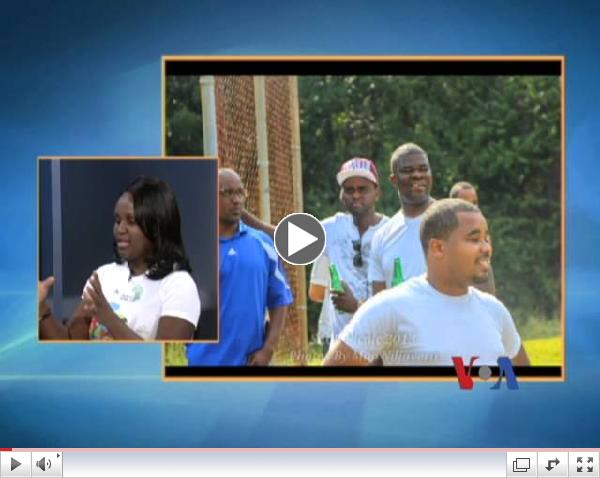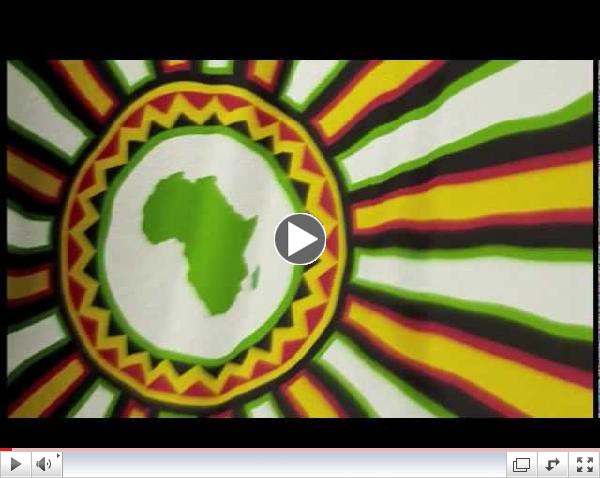| | | The African Union Diaspora Leadership Roundtable Capacity Building, Collaborative Partnerships And the Role of the Social Media Engaging the African Union and Governments on The Benefit and Implementation of the African Union Diaspora Legacy Projects
and Understanding Vision 2063
This is an innovative Stakeholder Empowerment Program in response to the African Union Citizen and Diaspora Organization request for a Diaspora Program on the Occasion of the US-Africa Summit.
|
| Format:
Leading Minds from Civil Society Organizations, the Media and Stakeholders from all the regions in Africa will
engage in dialogue on the salient goals and objectives of the Five African Union Diaspora Legacy Projects and Vision 2063.
Outcomes: Identification of Leadership Capacity for the African Union Diaspora Legacy Program in September 2014
For the Overview of the African Union Diaspora Legacy Projects, click on: Download
The special presentations highlight the potentials of Africa Diaspora in the implementation of African solutions. |
| Overview of the African Union Diaspora Legacy Projects Powerpoint Presentation with James Atanis |
| The Magreb Center
The Maghreb Center on North Africa Development is the only Africa Diaspora Regional Think Thank in the United States, which is a model for replication by other regions and expansion to all Africa. Learn More
|
| The Billion Dollars Investments from Africa Diaspora toward African Development: A Reckoning Force African Hometown, Alumni and Professional Networks: A-HAPNs
The Grassroots with Ahmed Dean Kargbo, Jennifer Gray-Brunskine, Juliette Wakaria |
| Redressing Challenges Facing the Special Needs Population Marie Josette Minko, President Women Group, Association of the Handicapped Without Borders. |
| | When: Saturday August 9, 2014
4pm to 9pm EST
Where: 1401 University Boulevard East, Adelphi, Md 20783 Crystal Restaurant and Lounge An Africa Diaspora-owned Business
Admission: Free to Registrants for the African Union Diaspora Project Workshop in September 2014.
For all others: $25 for three course meal African Buffet Dinner
Chef Marie Joe and Miss Sierra Leone 2102 |
 | | Bridge to the Sixth Region with Russ Campbell Jr. |
Faith-Based Partnerships in Developments and Conflicts Resolutions
Paradigm Change on the Buzz Balancing the Trade: Promoting African Products and Services in US Markets
AGOA with Flory Ramoreboli
Trade Not Aid with
Dr. Samuel Dongmo aka Docta Musica
Spotlight Embassy of Central African Republic in the United States.
In Step with Friends of Africa Appreciating the Role of Former Peace Corps Who Served in Africa.
Heritage  With The Renaissance Center for Culture and Education.
|
Stay Updated
Visit Us
On Facebook
The African Union Diaspora Steering Committees appreciate your time, collaboration, and accommodation of the new schedule.

|
|
|
|

 | | Southern African Community U.S.A. |
Learn more about the Southern African Community in the US: Click The Southern African Community in the Diaspora USA are members of the Southern Africa Development Community - SADC: Click | |
 | | African Union Flag "The Africa Rising Banner" Anthem Lyrics |
Let Us All Unite and Celebrate Together Let us all unite and celebrate together
The victories won for our liberation
Let us dedicate ourselves to rise together
To defend our liberty and unity O Sons and Daughters of Africa
Flesh of the Sun and Flesh of the Sky
Let us make Africa the Tree of Life Let us all unite and sing together
To uphold the bonds that frame our destiny
Let us dedicate ourselves to fight together
For lasting peace and justice on earth Let us all unite and toil together
To give the best we have to Africa
The cradle of mankind and fount of culture
Our pride and hope at break of dawn.
| |
|
|
_,_._,___
--
You received this message because you are subscribed to the "USA-Africa Dialogue Series" moderated by Toyin Falola, University of Texas at Austin.
For current archives, visit
http://groups.google.com/group/USAAfricaDialogue For previous archives, visit
http://www.utexas.edu/conferences/africa/ads/index.html To post to this group, send an email to USAAfricaDialogue@googlegroups.com
To unsubscribe from this group, send an email to USAAfricaDialogue-
unsubscribe@googlegroups.com
---
You received this message because you are subscribed to the Google Groups "USA Africa Dialogue Series" group.
To unsubscribe from this group and stop receiving emails from it, send an email to
usaafricadialogue+unsubscribe@googlegroups.com.
For more options, visit
https://groups.google.com/d/optout.































No comments:
Post a Comment